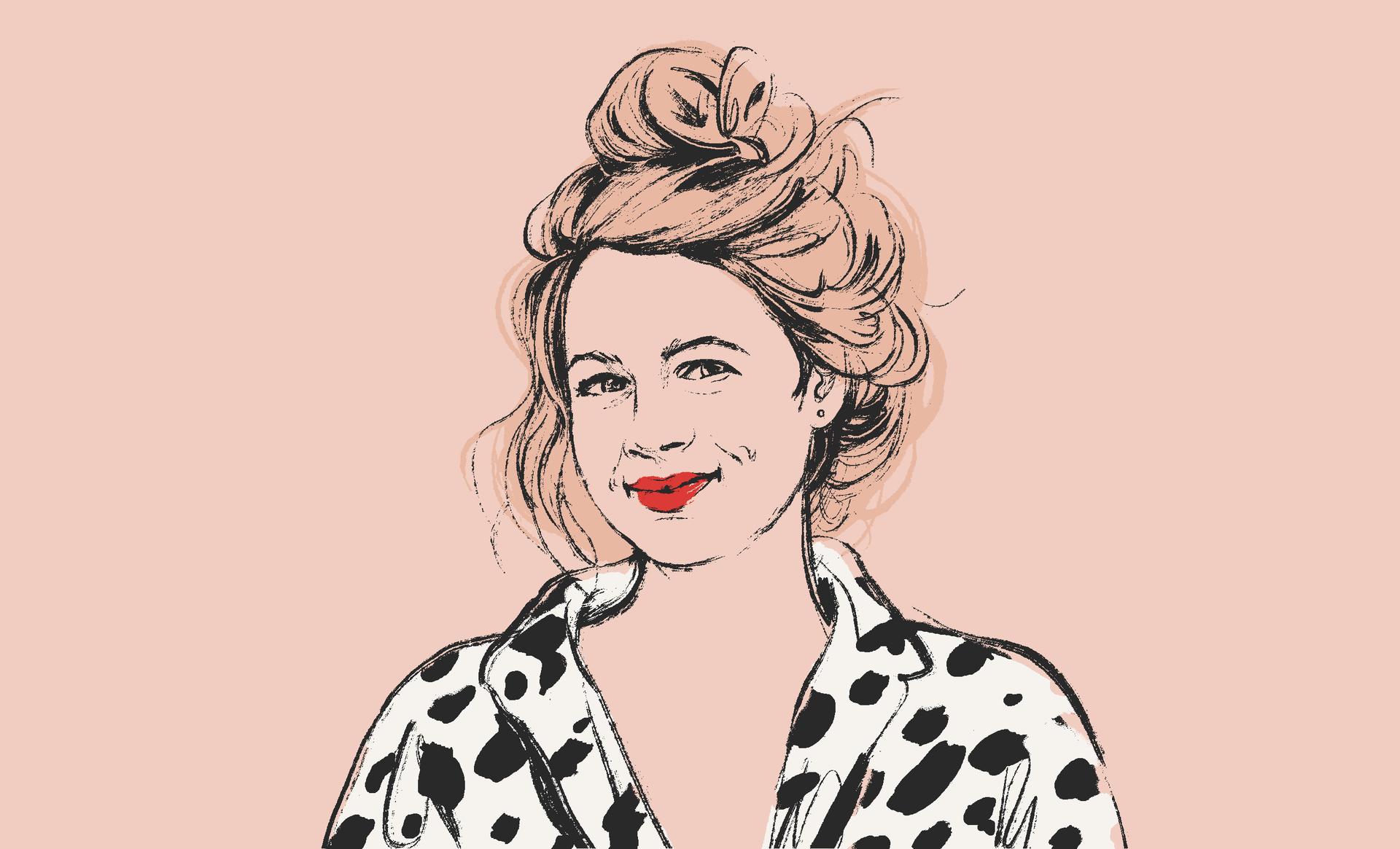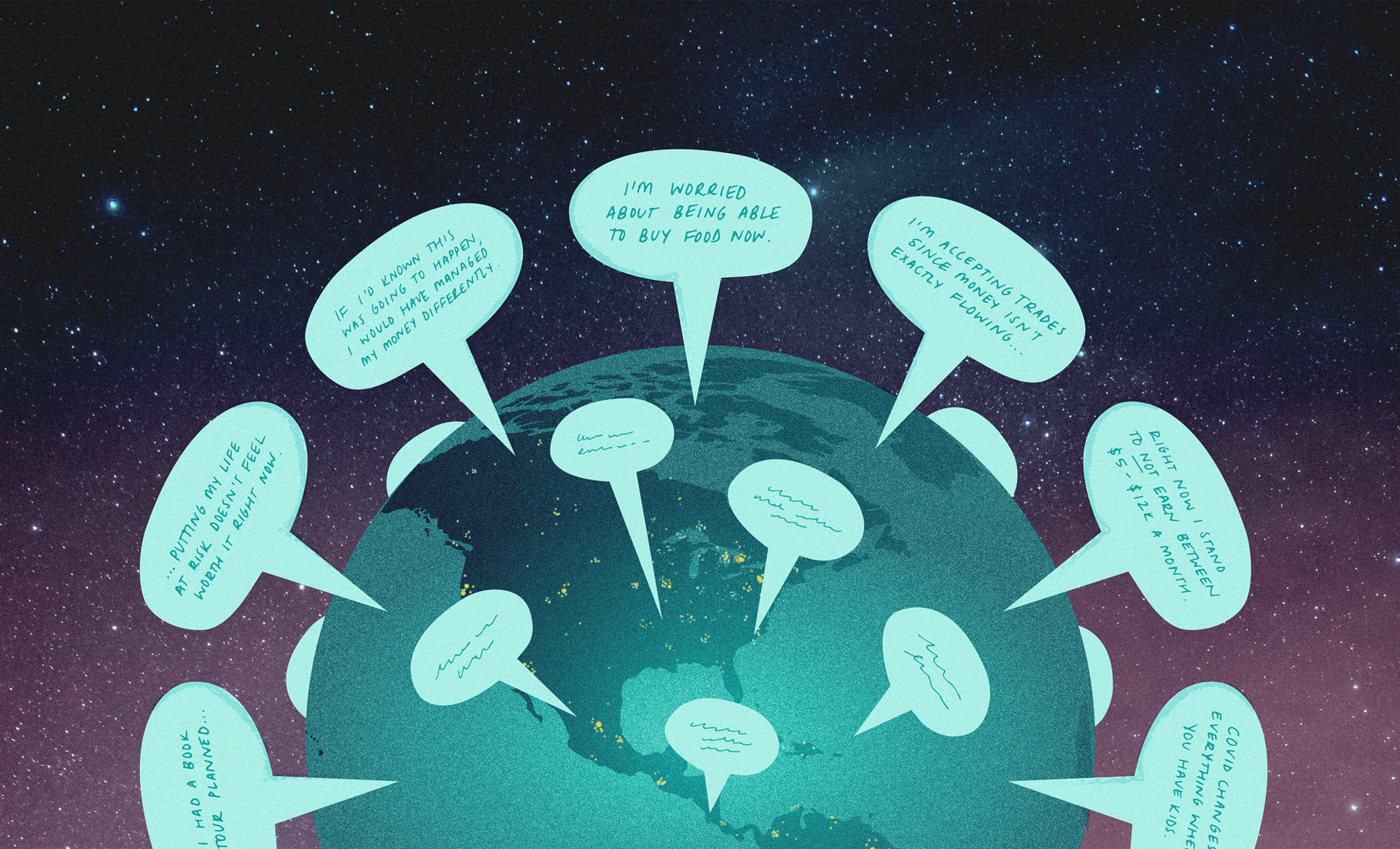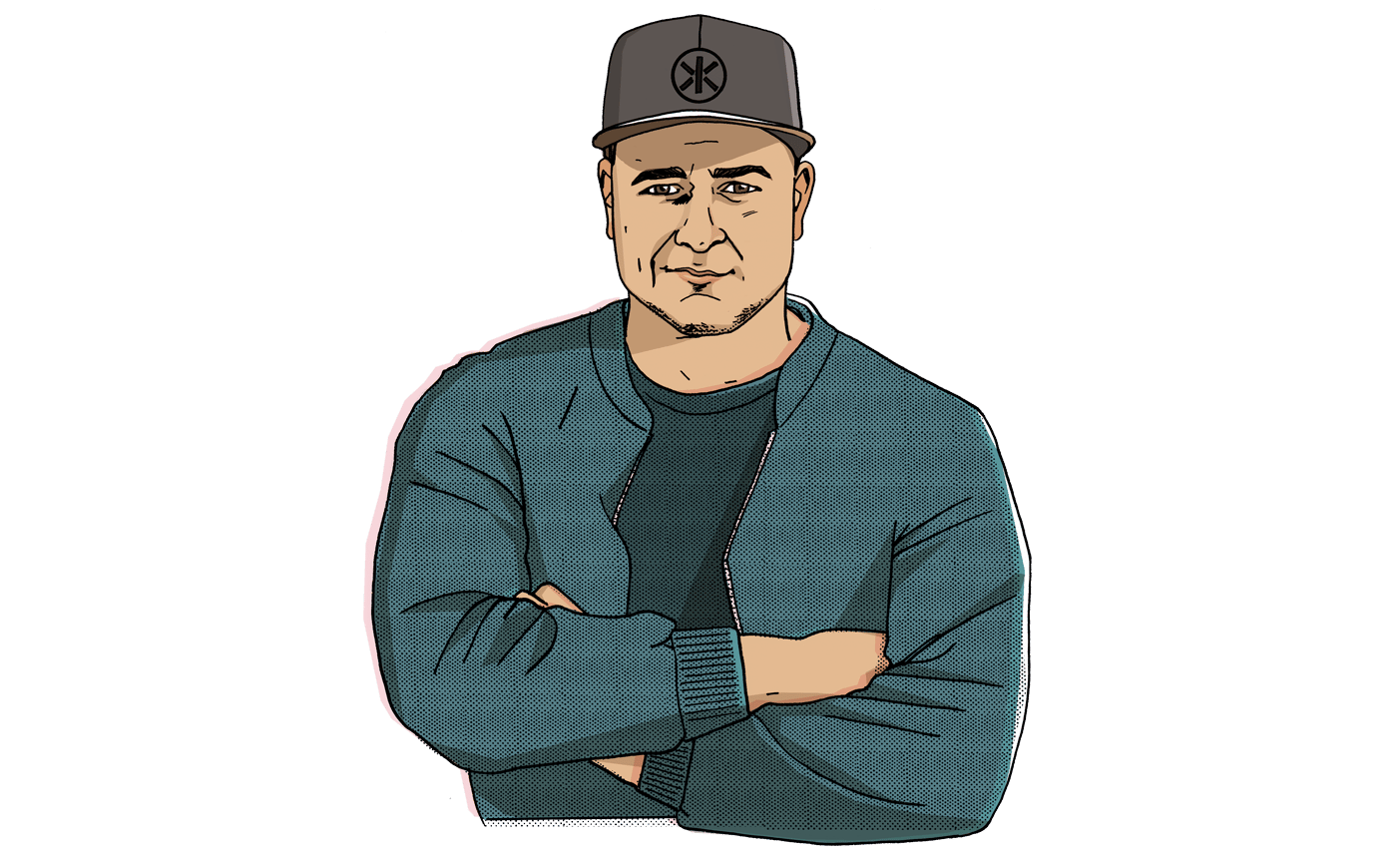
Money Diaries
The Drummer from Keys N Krates Tells Us Why He Doesn’t Care About Material Things but Still Wants a Gold Rolex
Adam Tune from the Toronto band talks about how his most valuable financial lessons came from realizing he could live happily being broke.
Wealthsimple makes powerful financial tools to help you grow and manage your money. Learn more
Wealthsimple is a whole new kind of investing service. This is the latest installment of our recurring series “Money Diaries,” where we ask interesting people to open up about the role money has played in their lives. Adam Tune is the drummer for the Canadian electronic music band Keys N Krates.
I used to be terrible with money. I remember, in the early days of the band, we got student-loan money, and I spent it on keyboards and digital equipment, which are really bad investments. If you buy good vintage microphones and preamps and stuff, they hold their value pretty well.
But the keyboards I was buying are like computers: You buy one and a month later it’s outdated and worth nothing.

Sign up for our weekly non-boring newsletter about money, markets, and more.
By providing your email, you are consenting to receive communications from Wealthsimple Media Inc. Visit our Privacy Policy for more info, or contact us at privacy@wealthsimple.com or 80 Spadina Ave., Toronto, ON.
Around the same time, I got my first credit card, and I loaded up on gear figuring I’d buy now and pay later. So when I moved to Toronto, I was still paying off stuff that I didn’t even have anymore. And I did the worst thing: I made only the minimum payment every month. Periodically, the bank would send a letter saying my credit limit had been increased—from $500 to $1,000 to $1,500. By the time I moved to Toronto, I had a $10,000 credit limit, but I was $9,900 in debt. This went on for years. When we played Lollapalooza in 2013, I had $30,000 in credit-card debt. I remember sitting in the hotel room in Chicago, and I didn’t have $60 so I could go to the Cubs game that everyone else was going to. That was the lowest low, playing this massive festival in front of thousands of people and I didn’t have 60 bucks.
"It’s crazy when you come back to where you’re from and people assume that you’re rich."
I grew up in the suburbs, in Ajax, one of those places close to Toronto where you can raise a family in a house with a yard that’s under a million dollars. My dad had a job as a machinist. When I was in high school, he went on strike, and rather than go back afterward, he started his own business. He made signs for plazas and McDonald’s. Watching my father start his business was the first time I remember really being inspired to be an entrepreneur—you know, taking vacations whenever he wanted to and that kind of thing.
In grade seven, I started playing drums in band class. By grade nine, there were 10 drummers in band. Obviously no band could have 10 drummers, so the multicultural society donated a bunch of steel pans to the school, and all the drummers started learning pans. A steel-pan band in the suburbs was pretty unique, so in the summer I started booking the band for weddings and stuff. I wasn’t a very good negotiator, so we’d make $150, and we’d just split it among the people in the band. The school didn’t like it when they found out we were making money. When we went back to school, I remember going in to the head of the music department and demanding a cut of the sales of a cassette of our music that the school sold at events. Looking back, it was pretty crazy that they recorded us but we never got any money from it.
After high school, I went to college and pretty much stopped drumming. That’s when I met [keyboardist David] Matisse. After college, in 2000, we moved to Toronto, and my other buddy and I were managing Matisse, recording him, trying to make a little R&B star out of him. We started playing shows, and we couldn’t really afford to hire a drummer, so I just said, OK, I’ll pick it back up, and I started drumming and he played keys and sang. We’ve played together ever since.
Recommended for you

She’s a Toronto Legend, Model, and Style Icon. And She Was Nearly Homeless
Money Diaries
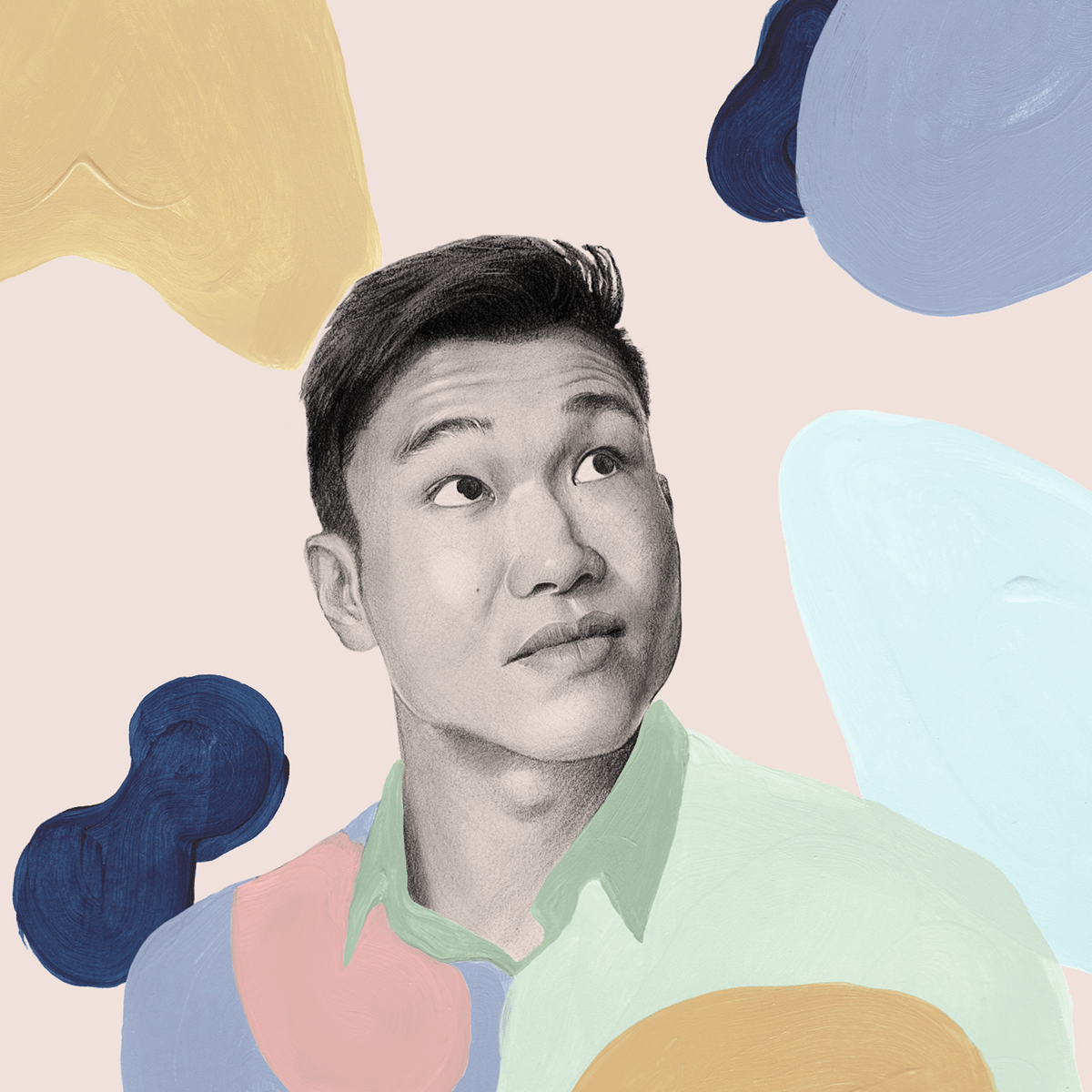
Joel Kim Booster Was in Massive Student Debt Until Two Years Ago
Money Diaries
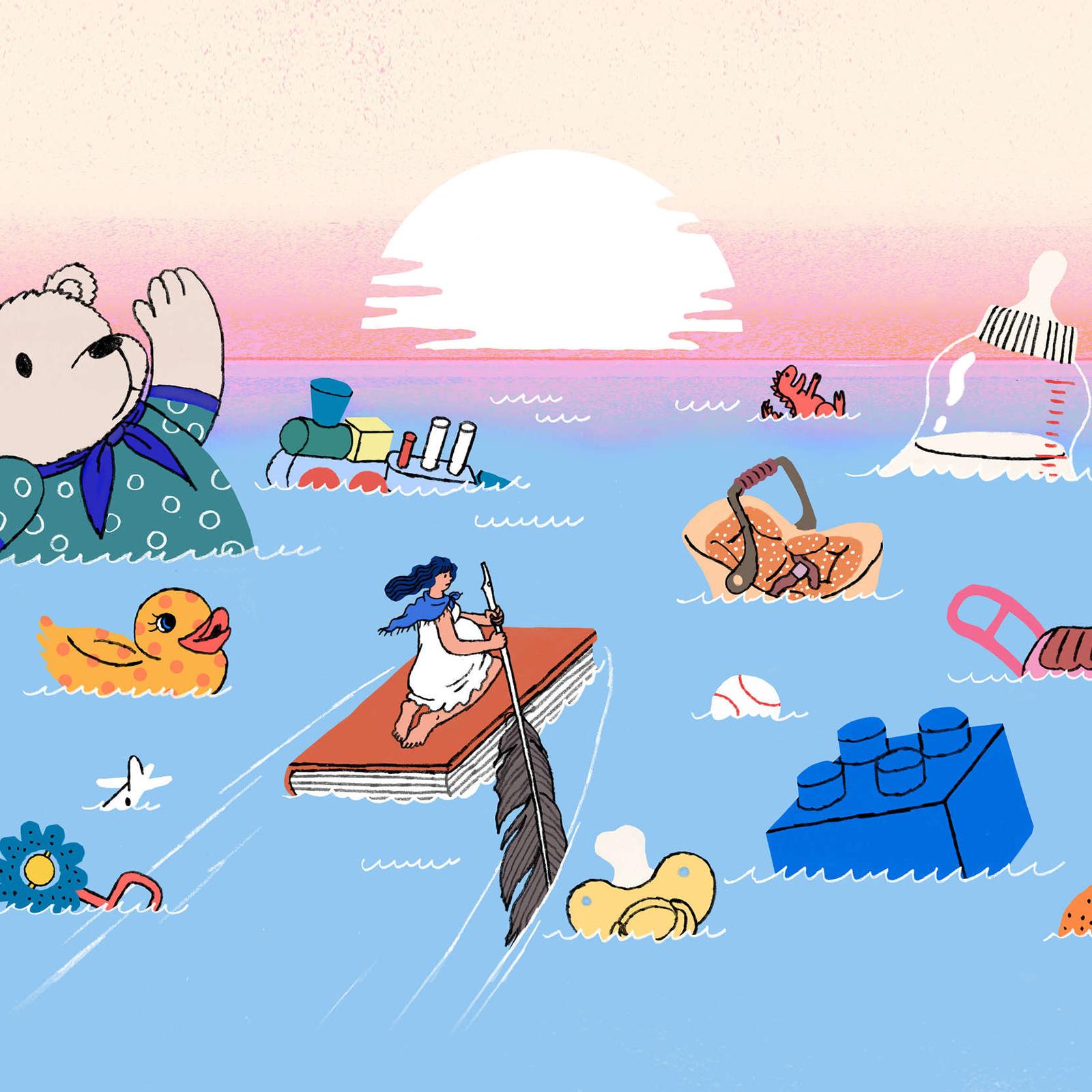
Karen Russell: A Brutally Honest Accounting of Writing, Money, and Motherhood
Money Diaries

How to Quit Your Job and Bike Around the World for $17,000
Money Diaries
It’s crazy when you come back to where you’re from and people assume that you’re rich. They were like, “How many houses do you have?” and I was like, “I actually live in a basement apartment.” In the last few years, we’ve started making a little bit of money, and I’ve started paying off the debt. I took some advice from my mom, which was to pay off the one with the lowest balance first—get rid of that one monthly payment and kind of work from there. So I paid off my smallest student loan. Now that I know a little bit more, I understand that I should have been paying off the high-interest credit-card debt first. But it was a psychological thing for me, getting rid of one of those payments altogether. So then I went after the big one. If I got a cheque for $10,000—an amount of money I’d never seen before—I’d think, What am I going to do with $10,000? I don’t want a car; I take Uber. So I’d just slap $5,000 of it on the credit card. I paid it off.
"If I went out and bought a brand-new BMW, I’d feel like the other guys had more money than me because I’d made a dumb purchase."
I’m just getting out of that basement apartment now. I have a girlfriend living with me who moved from the U.S. to Canada. I probably would have stayed there maybe a little longer just to save more money, but as soon as she moved here, I was like, OK, we need to live somewhere else.
The band never fights about money. We actually rarely fight in general. But we do all talk about money a lot. It’s still fairly new that we’re making a consistently good income. But there’s something between us where we’re always checking out what the other guys are doing. Like if one of us starts buying RSPs, we’re like, “Yo, you buy RSPs, and it goes against your taxes, so you’ll have to pay less in taxes.” It was like, Oh, shit, what a great idea, and then we all ran out to the RSP department. I think if I went out and bought a brand-new BMW, I’d feel like the other guys had more money than me because I’d made a dumb purchase. It’s interesting how we live now—since we’ve never known when the next cheque was going to come, we now hold on to our money and still live like we don’t have anything.
We’re all thinking about what’s going to happen after the band is done. I have no idea how much I need to retire. I hope to do this for another 10 years and, at the end of it, have a few properties generating rental income along with some retirement savings. I think if I have just a few sources of income, I’ll be able to move somewhere relatively cheap, like Costa Rica, and get a little hut on the beach and call it a day.
If money were no object, I’d pay off both my parents’ mortgages. And I think I’d buy experiences over things. When you live in hotel rooms as much as we do, you really start to realize how little you need—a laptop, a cell phone, and nice clothes. Beyond that, you don’t need the 60-inch TV and all that shit. So I’d spend money on experiences, like traveling to places where I might not necessarily get to go otherwise, like Africa. But I wouldn’t spend much on material things. Though I am going to indulge myself with a nice watch. I’ve always wanted a Rolex, but the cost of a Rolex is a bit ridiculous. Then I was at a festival, and I saw this DJ from the U.K. He looked like he could have been homeless: His clothes were raggedy, and he wore raggedy shoes, but he was wearing this gold Rolex. I thought it was, like, the coolest thing that he just didn’t give a shit about how he looked, but he had a nice watch.
I’m going to buy the watch with cash of course.
As told to Andrew Goldman exclusively for Wealthsimple. We make smart investing simple and affordable.
Wealthsimple's education team is made up of writers and financial experts dedicated to making the world of finance easy to understand and not-at-all boring to read.

